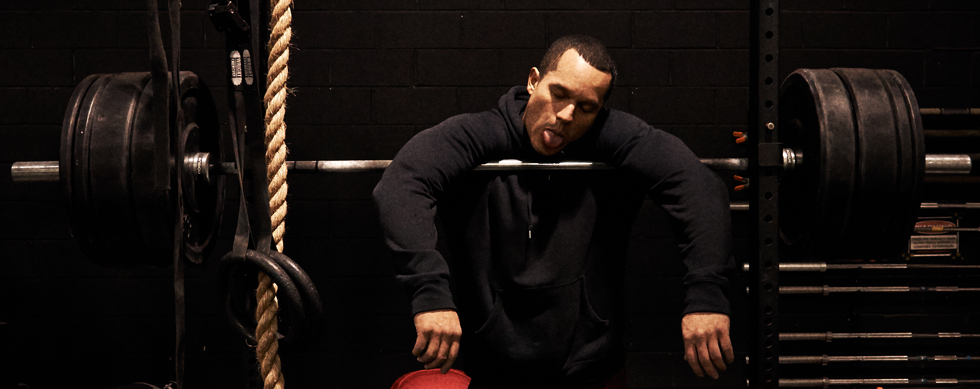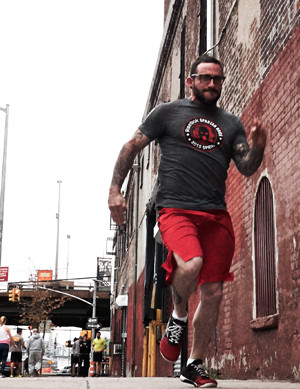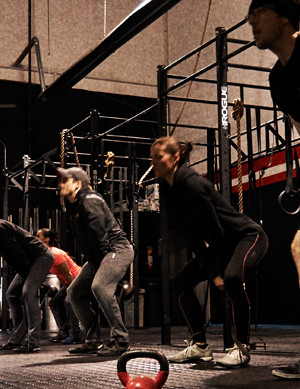5 Signs You Could Be Overtraining
By Jenessa Connor
This article was originally published on TheBoxMag.com and appears with their permission.
Yesterday’s WOD felt more brutal than usual, and you’re still exhausted today. Are you overtraining?
Probably not.
“It’s one of those concepts that, in my opinion, gets a little overblown,” says Rob Sulaver, TomTom fitness ambassador and founder of Bandana Training. Fatigue and soreness, which are relative to each athlete and his or her own threshold for pain, are both perfectly normal symptoms of training that are often misinterpreted as warning signs of a more serious issue. “I think it’s important to teach people that some or a lot of discomfort is very often a good thing,” Sulaver says.
However, overtraining, which Sulaver describes simply as “the point at which training does you no good,” can happen. And it’s most common in sports or workouts that involve high-volume, high-intensity training and among athletes who love to train hard. (Sound familiar?) As a CrossFitter, you are slightly more susceptible to overtraining than the average gym-goer, so take note of the following signs that your WODs may be reaching the point of diminishing returns.
1. Loss of Enthusiasm for Training
Overtraining’s No. 1 burn: It happens to those who are most passionate about working out. “Usually you see it with people who really love to train and then that sort of changes,” Sulaver says. “They’re not very pumped about their workouts anymore, and that’s a red flag.” If you’re the type of person who schedules vacations around gym access but lately you’ve been dreading your time at the box, your shift in attitude could be a symptom of overtraining.
2. Irritability and Depression
For the overtrained athlete, that bummed-out feeling about scheduled workouts will often bleed into time spent outside the gym. You (or your friends, co-workers or family members) may notice moodiness, feelings of sadness or anger, loss of appetite and trouble sleeping.
3. Elevated Resting Heart Rate
A chronically elevated morning or resting heart rate can be a strong indicator for overtraining, so it’s a good idea to use a sports watch or heart-rate monitor to track your heart rate throughout the day if you think you may be at risk. Sulaver notes that a five- to 10-beat-per-minute spike, in conjunction with high-volume, high intensity-training, is worth further consideration.
4. Frequent Illnesses
If you’re normally pretty healthy but you’ve managed to catch every cold, flu and stomach bug that’s made the rounds, you could be working with a compromised immune system, another common sign of overtraining.
5. Lack of Progress
File this under reason No. 493 to track your WODs. “I think it’s important for people who are taking training very seriously to record their workouts and to monitor their progress closely. And if they’re not making progress with their workouts, that’s a big factor,” Sulaver says. You can’t expect to PR every week, but if your numbers have stalled out or you’re regressing, there’s probably a bigger issue. “We train in order to make progress,” Sulaver says. “If progress isn’t happening, something has to change.”
The solution for overtraining is pretty straightforward and is often a matter of perspective. When dealing with athletes who are primarily focused on crushing workout after workout, Sulaver helps them develop a more holistic approach to training. “Instead of thinking about their progress in terms of more and more training, I try to get them to think about their progress in terms of more stress-management techniques, more sleep and a stronger focus on the nutrition side of things, again, because that’s the whole picture.”
Additionally, rest and recovery should become more of a priority because “being under-recovered is synonymous with being overtrained,” Sulaver points out. And it’s not just about dialing back on volume and intensity. Making time for modalities like soft tissue work, stretching and mobilization can make a big difference in getting an overtrained athlete back on track.






Good to know, thanks for posting this!